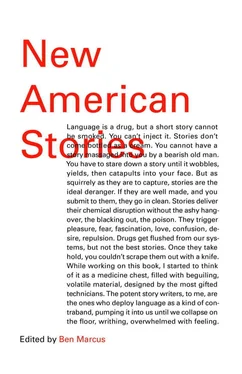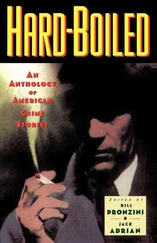— The man must be shot! resolved Lubeck’s stepfather. I will go and be your second tomorrow.
— Thank you, said Carr.
— But this business at the house, said Lubeck’s mother. And this business with the Judge’s wife. Why did you take her up to your room and have-to-do with her?
Carr shifted uncomfortably.
— I just felt so guilty, he said. I didn’t know what to do.
— Is that what you do when you don’t know what to do? Lubeck’s mother and stepfather exchanged a look.
— What about this servant girl? asked Lubeck’s stepfather. What did she look like with her clothes off?
— Stop it, you, said Lubeck’s mother. That’s about enough of that.
They walked Carr to the door, patting him on the shoulder and back and commiserating with him. They all felt very keenly the loss of Lubeck and Brennan. To be fair, they were not so sad about Harp.
— Treacherous cur, said Lubeck’s stepfather. We should never have let him in the house.
The funeral was to be the following Tuesday.
— I hope to see you there, said Lubeck’s mother. Brennan’s family is going to travel the whole way, which will take from now until then, and they will stay here for a few days and then return. You are welcome to come and stay here if you like. It is better in such times as these to be around other people.
Tonight, Carr told them, he thought he would rather be alone.
— That’s all very well, said Lubeck’s stepfather. We are all alone in the face of uncomprehending death.
Lubeck’s folks smiled encouragingly at Carr as he went away in the clothes of their murdered son.
—
Then the dream shuddered, and he woke.
He was lying in bed, in his room. He went to the window and opened it. It was dark out. He’d slept the whole afternoon. The dream was muddled in his head and sat with unconscionable weight. What was true?
He thought and thought.
The Judge’s wife, he thought. She didn’t come here. Then it was on him again. There was no lie. There had been a miscarriage. He sank to the ground beside the window and sat back, curled against the wall. They were guilty. They had done it.
There was a knock at the door.
Carr went toward the knocking. Lubeck’s stepfather was standing in the corridor.
— Thought we’d check on you. Everything all right?
Carr shook his head.
— Tomorrow, eh?
Carr indicated that the man should come in.
— No, no, I’m not staying. Just stopped by for a moment.
A thought struck Carr:
— What is the Judge’s house like? Have you ever seen it?
— It’s a small place, near the mill. A stand of birch trees, and a red house left of the curve.
— I know it, said Carr. So that’s the house. It’s a small house.
— Yes, said Lubeck’s stepfather. A small house. Are you going there?
— Not me.
Carr related the events of the morning.
— So, tomorrow. The track?
— Yes, said Carr. I don’t see a way out.
— I’ll go with you, said Lubeck’s stepfather.
— You don’t have to.
— I know I don’t have to.
— All right.
— Tomorrow then, I’ll come here.
— Tomorrow.
Carr shut the door. The dream had now gone from him completely. He could no longer remember having felt betrayed by the Judge and his wife. His anger at the Judge was vanished in every extremity. In every direction, he could see only what they had done, he, Brennan, Lubeck, and Harp, and how it could not be fixed.
No one explains this to you, he thought. That there are so many things without solution.
He lay down again, and lay for some time, with a blankness in his eyes before sleep drew him on like an ill-shaped coat.
—
Another dream, and Carr found himself sitting on the lawn of a great landed estate. He could not turn around. He did not know why. Behind him, someone was speaking. A man was speaking about the construction of a cemetery of black granite, of the need for the services of a particular sort of stonemason, of the rationale for a certain wind direction and distance from the sea. Carr drifted deeper into sleep and was gone even from his own dream.
He lay in bed. He could smell the morning where it was around him. A dog was barking somewhere in the building. A wind was blowing, and the house creaked. Doors locked shut strained to be wall, but they might never be. In a moment he had risen and passed out of the room. He did not permit himself to look at it before he left.
Carr was early. He was outside. It was cold. It was early to have gone outside. There were trees that lined the street. Each had been allotted an area of stoned-in earth. More than a hundred years ago, it must have been, for now the trees’ roots up and down the avenue stretched and crouched and broke at the surrounding stone. The trees rose to make a tunnel of the street in summer. In winter the fingers met in the air all along, winding about each other. He felt the permanence of the street, of the town, the permanence of the trees. The wind came up again and turned him, pushed him a half step. He looked away from the wind. The sky was brightening. The wind blew harder and harder. He turned up his collar and sheltered against the house.
When he looked back, the automobile was waiting. He got in.
Lubeck’s stepfather squinted when he looked at him, put the car in gear, and pulled out into the road.
Carr looked down at his clothing. He was wearing his best, a three-piece suit, an overcoat. Why? He himself could not say.
The car wound here and there. Lubeck’s stepfather was taking a different route. Somehow this was a vague hope. He had never thought of driving in a different way to the track. Might that change things?
But soon enough, the ways came together, and it was over the bridge, through the curling country, and then up ahead they saw distinctly through the starkness a car and two figures waiting.
—
Lubeck’s stepfather pulled to the side of the road.
— I’m sorry, Leon, he said. I can’t stay.
Carr nodded. He patted the man’s shoulder and got out. He could see through the trees the Judge’s profile. The second figure was a woman.
—
Up to them went Carr.
He nodded to the Judge. He looked then clearly on the Judge’s wife. She did not look like she had in his dream. This woman had been quite ill. What must it have been like? he wondered.
— I’m sorry.
The cloth was laid on the hood. The pistols were there.
The Judge had turned away. He was staring off into the trees. Carr touched his shoulder.
— I want to say, said Carr. I want to say I’m sorry to you both. We didn’t know what we were doing. It’s strange how luck can be so large and small. One turn, and everything goes. I mean…
The Judge looked at him wordlessly. The Judge’s wife’s face was drawn and pale. Her hand twitched.
Carr continued.
— I don’t know what this is for you, what your life was, what it would have been. But this, it was something that happened in a street. There are streets and things that happen in them, and no one knows how or why. I want, I mean…
He looked around him. The day was now come completely and the track stretched away. The trees rose up. The drive curved into the road that ran on and on into the town that he knew, and beyond. Birds sailed effortlessly between cold branches.
— I mean, he said. I mean…
The Judge’s wife moved. She put her hand on the Judge’s arm.
— Allen, she said. It’s time. Let’s be done with it.
He turned toward her, and his back was to Carr. Her eyes came over the Judge’s shoulder. They were dark and small. There was nothing in them, nothing at all.
Читать дальше










![Женя Джентбаев - neo futura [stories]](/books/692472/zhenya-dzhentbaev-neo-futura-stories-thumb.webp)

